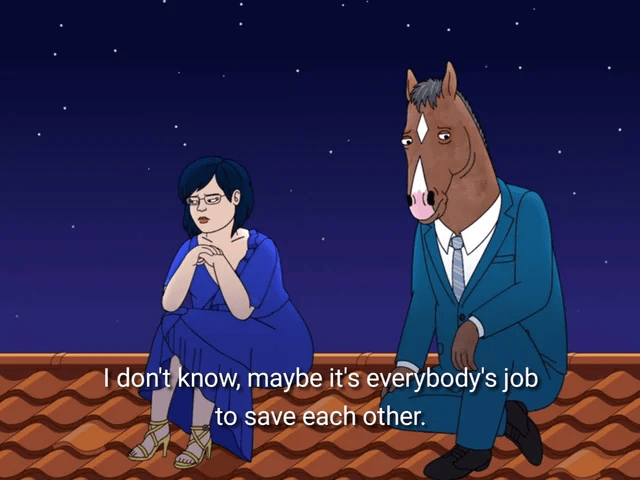The defense “I don’t owe you anything” has to have done the most irreparable damage to the minds of the youth. It has breached the social contract and violated the principles of ethics and contractualism. In short, chat, we are cooked and Dostoyevsky arguably clocked that first:
“…but first we have to go through the period of isolation.”
“What do you mean by isolation?” I asked him.
“Why, the isolation that prevails everywhere, above all in our age — it has not fully developed, it has not reached its limit yet. For every one strives to keep his individuality as apart as possible, wishes to secure the greatest possible fullness of life for himself; but meantime all his efforts result not in attaining fullness of life but self-destruction, for instead of self-realization he ends by arriving at complete solitude. All mankind in our age have split up into units, they all keep apart, each in his own groove; each one holds aloof, hides himself and hides what he has, from the rest, and he ends by being repelled by others and repelling them.
He heaps up riches by himself and thinks, ‘How strong I am now and how secure,’ and in his madness he does not understand that the more he heaps up, the more he sinks into self-destructive impotence. For he is accustomed to rely upon himself alone and to cut himself off from the whole; he has trained himself not to believe in the help of others, in men and in humanity, and only trembles for fear he should lose his money and the privileges that he has won for himself. Everywhere in these days men have, in their mockery, ceased to understand that the true security is to be found in social solidarity rather than in isolated individual effort. But this terrible individualism must inevitably have an end, and all will suddenly understand how unnaturally they are separated from one another. It will be the spirit of the time, and people will marvel that they have sat so long in darkness without seeing the light…”
Excerpt from Dostoyevsky’s The Brothers Karamazov (1880)
The human experience is a collaborative, symbiotic one. Our survival and well-being have always been predicated on the notion that we owe each other care and accountability. This is what constitutes the essence of the social contract, a concept explored by philosophers like Rousseau and Locke. However, if that feels too intimidating or abstract, The Good Place TV show facilitates such ethical principles beautifully. Society only functions because of the seldom spoken, mutual obligations we have to one another.
Yet, the modern surge of hyper-individualism has shaken this foundation. The rhetoric of self-reliance — often championed by right-wing extremism — ignores the repeated historical failures of societies that prioritize individual accumulation over communal welfare. Take the Great Depression, for example: a crisis exacerbated by unregulated capitalism, corporate greed, and the refusal to acknowledge the interconnected nature of economic stability. As evidenced, it was the rise of the welfare state that pulled nations out of economic ruin and not individual effort. These social security, labor protections, and public programs made radical progress by recognizing economic hardship as a collective burden. However, this shift was not to be mistaken for charity; it was an act to redefine the components for sustainability.
You are in debt to that stranger for a smile.
You owe your friends a text back.
You should be able to ask a friend for a ride.
Yes, it is that deep.
We owe each other everything.
The alternative is social decay. Individuals, like Macbeth, are fatally blinded by ambition and self-interest. Macbeth’s hubris was his hamartia, and his disregard for the value of loyalty and morals sealed his faith. In the end, Macbeth’s reckless pursuit of power led not to the greatness he sought, but to his MacDeath.





couldn’t get the term “hyper-individualism” out of my head for a while so thank you for this brilliant post. i am scared of such beings